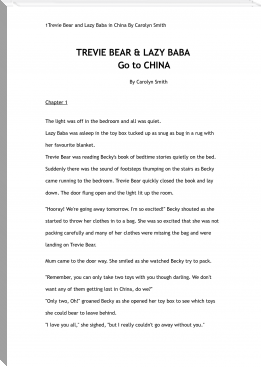Saved by the Lifeboat - Robert Michael Ballantyne (little bear else holmelund minarik txt) 📗

- Author: Robert Michael Ballantyne
Book online «Saved by the Lifeboat - Robert Michael Ballantyne (little bear else holmelund minarik txt) 📗». Author Robert Michael Ballantyne
"Ready about," cried the pilot.
The men leaped to their respective places.
"Take another pull at that fores'l sheet," said the pilot.
This was done. At sea this would not have been necessary, because the ship was lively and answered her helm well, but in the narrow channel things had to be done more vigorously. The extra pull was given. The tackle of the foresail sheet had been meant for the _Ruby_. It snapped asunder, and the ship missed stays and fell away.
Instantly all was desperate confusion. A hurried attempt was made to wear ship, then two anchors were let go, but almost before the startled owner was aware of what had occurred, the good ship received a shock which made her quiver from stem to stern. She lifted with the next wave, and in another minute was fast on the shoal which had proved fatal to the _Swordfish_, with the waves dashing wildly over her.
Long before this occurred, our hero, Harry Boyns, had been watching the vessel with considerable anxiety. He little knew who was on board of her, else would his anxiety have been infinitely increased. But Harry was one of those men who do not require the spur of self-interest to keep them alive to duty. He had observed that the ship was in distress, and, as the honorary secretary of the Lifeboat Branch, he summoned together the crew of his boat. Thus all was in readiness for action when the disaster occurred to the _Ocean Queen_.
Instantly the lifeboat was run down to the beach, where hundreds of willing hands were ready to launch her, for the people had poured out of the town on the first rumour of what was going on. The crew leaped into the boat and seized the oars. The launching-ropes were manned. A loud "Huzzah" was given, and the lifeboat shot forth on her voyage of mercy, cutting right through the first tremendous billow that met her.
At that time Old Jacob, the coxswain of the boat, happened to be unwell; Harry himself therefore took the steering-oar, and Bob Gaston was in the bow. Mr Joseph Dowler chanced to be among the spectators on shore. That fussy and conceited individual, conceiving it to be a fitting occasion for the exercise of his tremendous powers, stood upon an elevated rock and began a wildly enthusiastic speech to which nobody listened, and in which he urged the lifeboatmen to do their duty in quite a Nelsonian spirit. Fortunately a sudden gust of wind blew him off his perch. He fell on his head so that his hat was knocked over his eyes, and before he was thoroughly extricated from it, the lifeboat was far from shore, and the men were doing their duty nobly, even although Mr Dowler's appeal had failed to reach their ears!
It was a tough pull, for wind, waves, and tide combined to beat them back, but they combined in vain. Inch by inch they advanced, slowly and laboriously, although it was so bitterly cold that the men had little feeling in the benumbed hands with which they pulled so gallantly.
At last they reached the vessel, pulled well to windward, cast anchor, and eased off the cable, until they passed her stern and got under her lee. Just then Harry looked up and felt as if he had received a shock from electric fire, for he beheld the pale face of Annie Webster gazing at him with glowing eyes! No longer did he feel the chilling blast. The blood rushed wildly through his veins as he shouted--
"Look alive, Bob,--heave!"
Bob Gaston stood up in the bow, and, with a beautiful swing, cast a line on board, by means of which the boat was hauled alongside. Just at that moment the mainyard came down with a thundering crash upon the ship's deck, fortunately injuring no one. At the same time a tremendous billow broke over the stern of the _Ocean Queen_, and falling into the lifeboat in a cataract completely sunk her. She rose like a cork, keel uppermost, and would have righted at once, but a bight of the mainsail, with some of the wreck, held her down. Her crew, one by one, succeeded in clambering upon her, and Harry shouted to the men in the ship to hand him an axe. One was thrown to him which he caught, and began therewith to cut the wreck of cordage.
"Slit the sail with your knife, Bob Gaston," he cried, but Bob did not reply. All the other men were there; Bob alone was missing. The difficulty of acting in such turmoil is not to be easily estimated. Twenty minutes elapsed before the boat was cleared. When this was accomplished she righted at once, and Bob Gaston was found sticking to the bottom of her, inside, having found sufficient air and space there to keep him alive!
Another moment and Harry Boyns was on the deck of the wreck.
Perhaps the most earnest "Thank God" that ever passed his lips burst from them when he seized Annie's hand and entreated her to go with him at once into the boat.
"Stay! hold!" cried Mr Webster, seizing Harry wildly by the sleeve and whispering to him in quick earnest tones, "Can nothing be done to save the ship? _All is lost_ if she goes!"
"Hold on a minute, lads," cried Harry to the men in the boat; "are the pumps working free,--is your ground tackle good?" he added, turning hastily to the captain.
"Ay, but the men are used up--utterly exhausted."
"Jump aboard, lads," cried Harry to his men.
The men obeyed, leaving four of their number in the boat to keep her off the ship's side. Under Harry's orders some of them manned the pumps, while others went to the windlass.
"Come, boys, make one more effort to save the ship," cried Harry to the fatigued crew; "the tide will rise for another hour, we'll save her yet if you have pluck to try."
Thus appealed to they all set to work, and hove with such goodwill that the ship was soon hauled off the sands--an event which was much accelerated by the gradual abating of the gale and rising of the tide. When it was thought safe to do this, the sails were trimmed, the cables cut, and, finally, the _Ocean Queen_ was carried triumphantly into port--saved by the Covelly Lifeboat.
Need we tell you, good reader, that Mr Webster and his daughter, and Mrs Niven, spent that night under the roof of hospitable Mrs Boyns? who--partly because of the melancholy that ever rested like a soft cloud on her mild countenance, and partly because the cap happened to suit her cast of features--looked a very charming widow indeed. Is it necessary to state that Mr Webster changed his sentiments in regard to young Captain Boyns, and that, from regarding him first with dislike and then with indifference, he came to look upon him as one of the best fellows that ever lived, and was rather pleased than otherwise when he saw him go out, on the first morning after the rescue above recorded, to walk with his daughter among the romantic cliffs of Covelly!
Surely not! It would be an insult to your understanding to suppose that you required such information.
It may be, however, necessary to let you know that, not many weeks after these events, widow Boyns received a letter telling her that Captain Daniel Boyns was still alive and well, and that she might expect to see him within a very short period of time!
On reading thus far, poor Mrs Boyns fell flat on the sofa in a dead faint, and, being alone at the time, remained in that condition till she recovered, when she eagerly resumed the letter, which went on to say that, after the bottle containing the message from the sea had been cast overboard, the pirates had put himself and his remaining companions--six in number--into a small boat, and left them to perish on the open sea, instead of making them walk the plank, as they had at first threatened. That, providentially, a whale-ship had picked them up two days afterwards, and carried them off on a three years' cruise to the South Seas, where she was wrecked on an uninhabited island. That there they had dwelt from that time to the present date without seeing a single sail--the island being far out of the track of merchant vessels. That at last a ship had been blown out of its course near the island, had taken them on board, and, finally, that here he was, and she might even expect to see him _in a few hours_!
This epistle was written in a curiously shaky hand, and was much blotted, yet, strange to say, it did not seem to have travelled far, it being quite clean and fresh!
The fact was that Captain Boyns was a considerate man. He had gone into a public-house, not ten yards distant from his own dwelling, to pen this letter, fearing that the shock would be too much for his wife if not broken gradually to her. But his impatience was great. He delivered the letter at his own door, and stood behind it just long enough, as he thought, to give her plenty of time to read it, and then burst in upon her just as she was recovering somewhat of her wonted self-possession.
Over the scene that followed we drop the curtain, and return to Mr Webster, who is once again seated in the old chair in the old office, gazing contemplatively at the portrait of his deceased wife's father.
CHAPTER EIGHT.
CONCLUSION.
There are times in the lives, probably, of all men, when the conscience awakes and induces a spirit of self-accusation and repentance. Such a time had arrived in the experience of Mr John Webster. He had obtained a glimpse of himself in his true colours, and the sight had filled him with dismay. He thought, as he sat in the old chair in the old office, of the wasted life that was behind him, and the little of life that lay, perchance, before. His right hand, from long habit, fumbled with the coin in his trousers-pocket. Taking out a sovereign he laid it on the desk, and gazed at it for some time in silence.
"For your sake," he murmured, "I have all but sold myself, body and soul. For the love of you I have undermined my health, neglected my child, ruined the fortunes of hundreds of men and women, and committed m--"
He could not bring himself to say the word, but he could not help





Comments (0)